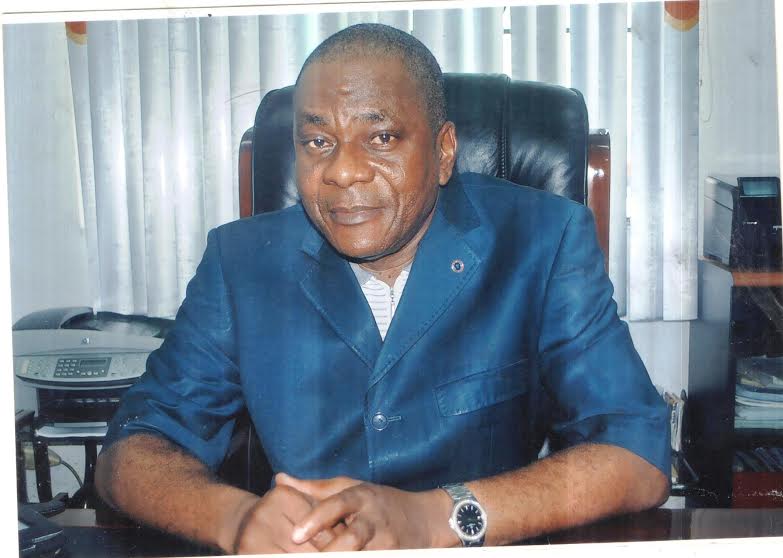…As FG postpones implementation till further notice
The National President, National Council of Managing Directors of Licensed Customs Agents (NCMDLCA), Mr. Lucky Amiwero has called on President Muhammadu Buhari to stop the proposed implementation of the Automotive Policy on the collection of 70% import duty earlier billed to commence today owing to the negative impact it would have on the economy.
Recall that the Federal government in April this year shifted the full implementation of the automotive policy to July 1, 2015.
In a letter he addressed to the President, Amiwero recalled that the new automotive policy had witnessed six implementation shifts that necessitated the issuance of six different circulars to either upgrade or clarify the process of implementation.
He noted that the shifts in the policy implementation clearly showed that certain aspects of the implementation process was yet to be concluded which according to him had adversely affected and drastically reduced revenue to the Federal Government, the reduction of employment of 70% of the maritime workforce and the massive diversion of vessels with cars to the neighbouring West African countries.
The NCMDLCA boss went on to list the economic impact of the partial implementation of the policy so far to include; the diversion of cars carrying vessels to neighbouring West ports as a result of high tariff of 35% for used vehicles and 70% for new vehicle, the reduction of the maritime workforce by 70% which affected mostly the Licensed Customs Agents, importers, dealers and Nigerians abroad and the reduction of activities by 50% in the operation of the terminal operators and shipping companies which has drastically affected their activities and may result in the retrenchment of staff anytime from now.
Others are; the relocation of Nigeria freight component that ,terminal charges/ ship dues and shipping company operation to other West African ports which was supposed to accrue to Nigerian port operators, the loss of customs revenue to government through massive smuggling due to the high demand of motor vehicles in the country, due to non availability of domestic proction that was not yet in place amongst other negative impacts.
Amiwero informed that after one year of and four months of partial implementation of the auto policy, which he said mostly focused on the increase of tariff from 5%, 10%, 20%, and 35% to 70%, there was the need to look at the gap in the policy and address them as it concerned,” the domestic demand and availability of locally made vehicles for Nigerian markets, the present state of former existing Assembly plants built around 80s and 90s, the reason for their closure, if the same reason will not affect the new auto policy, the graduation of Nigerian vehicles based of international standard, which group both light vehicles and heavy vehicles (cubic capacity) under the same tariff of 35%-70%, the trade obligation of World Trade Organization on tariff reduction and Local Content as it relates to our tariff 355 and Levy 35% (70%), the ECOWAS Common External Tariff (CET) on the uniform tariff of Ghana and Nigeria as a reference point due to developmental priorities within the sub-region among other considerations.
“If the Auto Policy is to succeed, the Nigeria Federal Government must create an enabling environment by the provision of the following; energy/power, reform of Nigeria Customs as an essential toll for success, simplify, harmonize and minimize port cost and procedure and working in line with global automotive standards”, the letter read in part.
Meanwhile, the Federal Government through the National Automotive Council (NAC) has again shifted the implementation of the 35 percent levy on imported used vehicles expected to commence today, July 1st 2015 to an undisclosed date.
The Director General of NAC, Engr. Aminu Jalal was reported to have said that implementation of the 35 percent levy would be on hold until the appointment of new Ministers by President Muhammadu Buhari.
“We have to wait for the Minister to come. As far as I know the Ministers are not around. When the new Finance Minister comes, we have to brief the person on what we are doing, explain the policy and why we are doing it, the Minister will then take up the issue. He has to give the order before it is implemented,” he said.
The Federal Government under President Good luck Jonathan had in September 2013 introduced the policy under which it hiked the duty payable on imported vehicles to 35 percent and slammed an additional levy of another 35 percent bringing the total to 70 percent from 20 percent.
The policy, according to the then Minister of Industry, Trade and Investment, Olusegun Aganga, was aimed at discouraging importation and encouraging local production of vehicles.
While the new duty rate and additional levy has since been applied on imported new cars, importers of fairly used cars otherwise known as ‘tokunbo’ have been exempted from paying the levy.
Send your news, press releases/articles to info@primetimereporters.com. Also, Follow us on Facebook on facebook.com/primetimereporters or call the editor on 07030661526.

